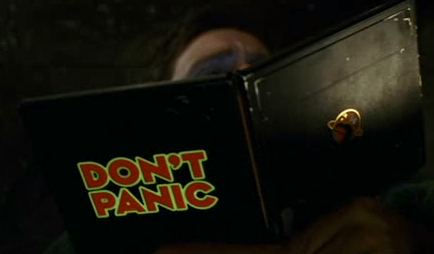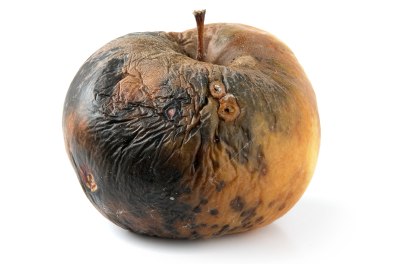That’s the motto on the cover of Douglas Adams’ sci-fi comic novel, The Hitch Hiker’s Guide to the Galaxy. For those with anxiety disorders, it’s advice that can be unusually difficult to follow. There are ways build skills that improve our ability to manage the symptoms of anxiety. Even, in many instances, to reduce the risk for and severity of the dreaded ‘panic attack’.
Here’s something from a psychiatrist with extensive experience in treating panic disorder.
Panic 101: what to do during a panic attack – and how to prevent them
According to current estimates, approximately 3% of American adults would meet DSM5 criteria for Panic Disorder (PD), with women outnumbering men. Other anxiety disorders, such as phobias and PTSD, may also feature episodes of near-paralyzing fear.
The National Institute of Mental Health defines Panic Disorder in terms of “…unexpected and repeated episodes of intense fear accompanied by physical symptoms that may include chest pain, heart palpitations, shortness of breath, dizziness, or abdominal distress.” These episodes, they point out, occur independently of any known fear or source of stress. They seem to come from nowhere, for no apparent reason.
“Suddenly I couldn’t breathe,” someone will report. “I was sure I was going mad,” another will say. “I felt I was about to die.” Easy to see how they came to be called ‘attacks’. It feels like an assault.
The Guardian article offers a few common strategies for managing such episodes:
- Allow the panic sensations to cycle through your body, rather than desperately trying to make the feelings stop. After all, panic attacks are inherently time-limited. In that respect, they remind me of drug cravings. Since we know in advance that a panic attack will end on its own, often in a matter of minutes, we can simply wait it out.
- For some of us, it helps to do something physical like “splashing water on your face or opening a window for a blast of fresh air.” Or mild exercise.
- To the best of your ability – and this will be easier for some people than others – attempt to detach yourself from the sensations that course through your body. Put yourself in the role of observer, studying your own behavior. From one patient: “I realized afterwards that my attacks weren’t as bad as they had been. I thought, am I getting better? From then on, whenever I had an attack, I didn’t get as upset about it.”
As for preventing attacks, the psychiatrist has some suggestions there as well:
- Practice reframing your anxious thoughts. For example, consider the evidence from a different, less negative point of view, hopefully arriving at a conclusion that is far less scary. Albert Ellis coined terms such as awfulizing and catastrophizing to describe the tendency to exaggerate dangers. After all, scaring yourself half to death isn’t exactly an effective coping strategy.
- Try taking better care of yourself as a rule. Minimize unnecessary stress, eat healthier, get more rest, don’t forget to exercise, etc. Your body will thank you.
A key characteristic of Panic Disorder, remember, is that panic episodes occur “out of the blue”. They’re not connected to any known threat. In that respect, there isn’t anything to be afraid of.
I find that reassuring.












